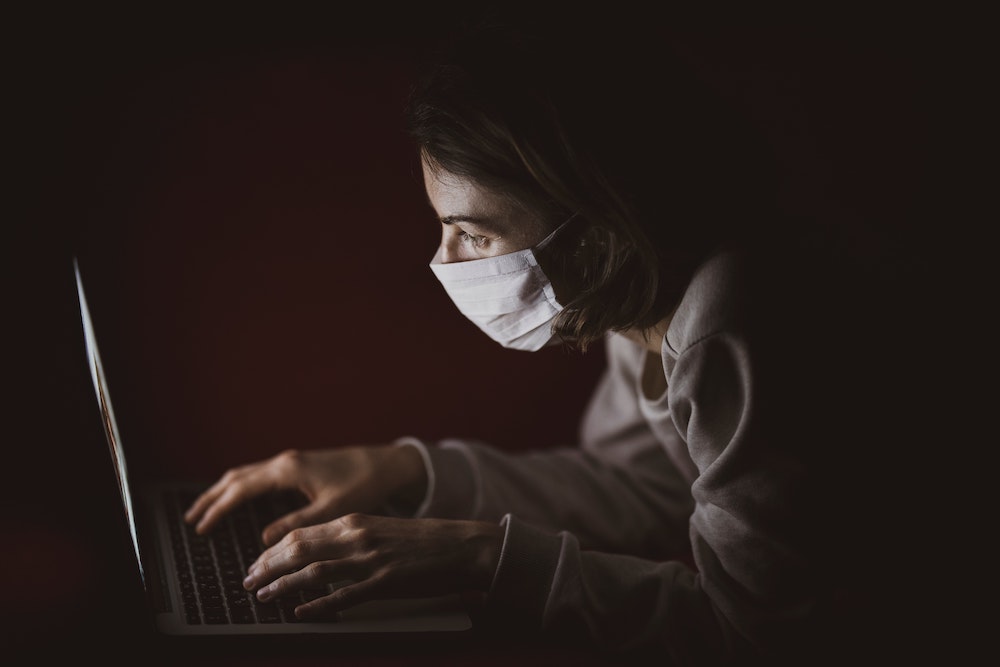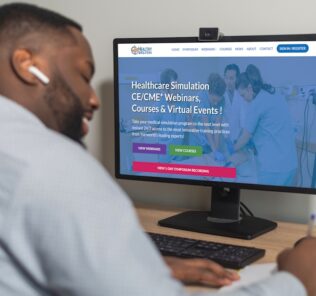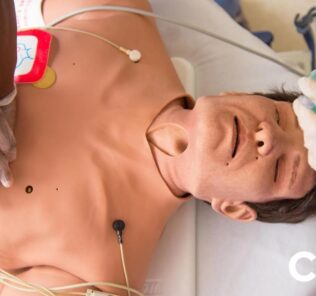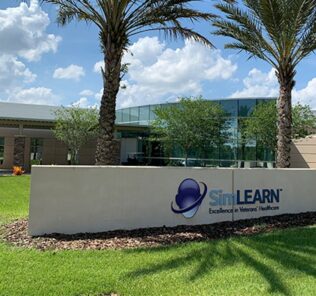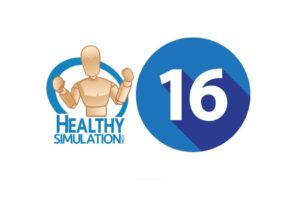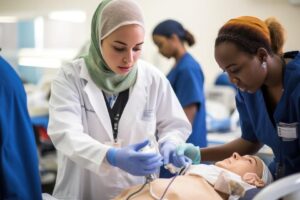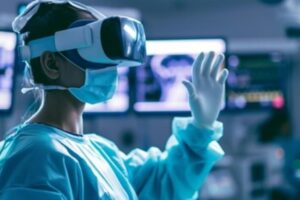Overcoming COVID-19 Disruptions to Medical Education & Training
As every healthcare institution in the world is dealing with the immediate effects of COVID-19 to their clinical education and training programs, the number of new articles focusing on the topic is staggering. Beyond our Coronavirus Resource Page, here are a few more of the latest helpful articles on overcoming COVID-19 disruptions to clinical training. From dealing with massive change to the latest recommendations from medical school administrators, and from nursing education team building to the best distance learning practices and more is covered here!
Time Magazine “How U.S. Medical Schools Are Training a Post-Pandemic Generation of Doctors”: Medical schools all over the world have had to adjust on the fly this year, in ways both practical and ideological. First, schools had to figure out how to remotely train students in skills taught hands-on before lockdowns. Then, in the U.S., schools were also forced to grapple with their roles in a health care system that often fails to keep Black and brown patients well. That meant learning how to produce doctors who could help chip away at those disparities moving forward. With no warning and no instruction manual, medical schools are figuring out how to train a generation of post-pandemic doctors for a world still taking shape. In developed nations, at least, the shift enabled schools to look critically at the way they were teaching before the pandemic. Kaiser’s preexisting plan to teach students anatomy using virtual reality simulators, rather than cadavers, proved fortuitous. Imperial College London gave students access to a video library of old patient interviews and exams.
Nursing Times “The role of the clinical education team in the response to Covid-19”: This pandemic has required the clinical education team to review and adapt their ways of working and to develop new and innovative ways to train and support our staff. Many of these changes have been positive and will continue after the pandemic. On reflection, nothing could have prepared us for this crisis, but the experience means the team is better prepared to respond to similar situations in future, while resulting in positive developments that will enable us to further enhance our services. For example, it has heightened our awareness of the need to continue developing online learning. To help this, members of the team were given a series of open questions on the subject to create a narrative of the changes necessary for the effective and safe delivery of training.
Sponsored Content:
AMA “4 phases of adapting to change during COVID-19 and beyond”: “We have to be master adaptive learners because we’re having to deal with different therapies, different treatments, different rules around quarantine and all the comorbidities that come along with COVID-19 … and their guidelines can change daily,” said Michael J. Fowler, MD, associate professor of medicine at Vanderbilt University School of Medicine, who co-wrote the chapter with Donald E. Moore Jr., PhD, professor of medical education and administration. “A clinician whose performance is characterized by adaptive expertise manages routine patients with known approaches and challenging patients with innovative approaches,” the authors wrote. In practice, the latter involves these four phases, some of which may overlap.
NCBI “Using Rapid Design Thinking to Overcome COVID-19 Challenges in Medical Education”: COVID-19 presents a unique tripartite set of challenges for medical education and training. First, information is abundant and in a constant state of flux. Due to the evolving nature of the pandemic, new information is being generated within a short period of time. This information needs to be curated and presented to a diverse range of learners and HCPs to share with patients, their caregivers, and the general public. The process of learning new skills and updating medical knowledge to provide safe and effective care highlights the need for both lifelong learning and narrowing the gap from research to practice. Although, understandably, the current focus is on controlling and acutely managing the COVID-19 pandemic, supporting HCPs and community members to build resilience and coping strategies is imperative. Online interactive tools, COVID-19 awareness resources, and training using simulations can help HCPs working with COVID-19 learn new medical skills that improve their well-being.
NCBI “Medical Education During the Coronavirus Disease-2019 Pandemic: Learning From a Distance”: Although trainees continued to staff inpatient services, they were unable to participate in prescheduled electives and other required rotations that may be important for subspecialty decisions and fulfill graduation requirements. Of note, accreditation bodies have given flexibility to program directors around the assessment of trainees’ readiness for unsupervised practice. With the limitations on elective surgeries, residents and fellows in surgical specialties may have struggled to perform procedures required by accreditation bodies for licensure and independent practice. The implication of these shortfalls remain uncertain, but there is concern for the possibility of inadequate training of proceduralists. As this academic year comes to a close and new trainees enter the workforce, in-person orientation sessions will be condensed into virtual programs. Likewise, residency and fellowship interviews will be transitioned to a virtual format.
YALE SOM “Medical Education continues in face of COVID-19”: “You have a plan, and the plan changes a day later,” Schwartz said. “You communicate to everybody, this is what they’re going to do, they set it up, the next day we find out something different and it changes everything.” It’s a rolling target. Yale, along with the entire world, faces a pandemic unseen since the flu of 1918. States and cities are asking people to stay home except to buy groceries, visit their doctors, or perform essential chores, and gatherings of people are limited to 10 or fewer. At Yale, conferences and meetings have been cancelled or postponed. The annual Match Day celebration in the Harkness ballroom became a virtual party, and the university has cancelled Commencement ceremonies. Medical and graduate students have shut down their experiments. Medical and PA students have been pulled from clinical clerkships and are working with faculty online to advance their studies in other ways for eight weeks.
Sponsored Content:
BMC “Distance learning in clinical medical education amid COVID-19 pandemic in Jordan: current situation, challenges, and perspectives”: With advances in technologies and social media, distance learning is a new and rapidly growing approach for undergraduate, postgraduate, and health care providers. It may represent an optimal solution to maintain learning processes in exceptional and emergency situations such as COVID-19 pandemic. Technical and infrastructural resources reported as a major challenge for implementing distance learning, so understanding technological, financial, institutional, educators, and student barriers are essential for the successful implementation of distance learning in medical education.
JSR “The Impact of COVID-19 Pandemic on Medical School Admissions: Challenges and Solutions”: Beyond this, many premedical students have determined alternative ways to give back and support their communities despite the in-person restrictions. The American Medical Association has suggested volunteering with phone triage to assist health systems and public health entities in reducing the number of patients in the emergency room. Surgeons and surgeon educators can help premedical students remain involved by offering virtual volunteer positions, such as remote research opportunities in assembling literature reviews or conducting statistical analyses. These are tasks that undergraduate students would thrive at and would help surgical research teams. Volunteering and contributing while social distancing will require imagination and diligence. The clerkship director local medical school is using remote simulation with avatars to carry out in-person techniques (G. Miller, personal communication, August 22, 2020). The technical skill is not gained, but decision-making improves. Furthermore, some trauma centers are using virtual reality medical simulations to train medical students and early-career doctors. Virtual learning platforms have been helpful in providing online courses and a method to practice technical skills during COVID-19. Such virtual learning, used for surgical residents, can be useful for all levels of medical training to prevent burnout and allow time to focus on technical skills.
Visit Our Medical Simulation COVID-19 Resources Page For More!
Lance Baily, BA, EMT-B, is the Founder & CEO of HealthySimulation.com, which he started while serving as the Director of the Nevada System of Higher Education’s Clinical Simulation Center of Las Vegas back in 2010. Lance is also the Founder and acting Advisor to the Board of SimGHOSTS.org, the world’s only non-profit organization dedicated to supporting professionals operating healthcare simulation technologies. His co-edited Book: “Comprehensive Healthcare Simulation: Operations, Technology, and Innovative Practice” is cited as a key source for professional certification in the industry. Lance’s background also includes serving as a Simulation Technology Specialist for the LA Community College District, EMS fire fighting, Hollywood movie production, rescue diving, and global travel. He and his wife Abigail Baily, PhD live in Las Vegas, Nevada with their two amazing daughters.
Sponsored Content:



